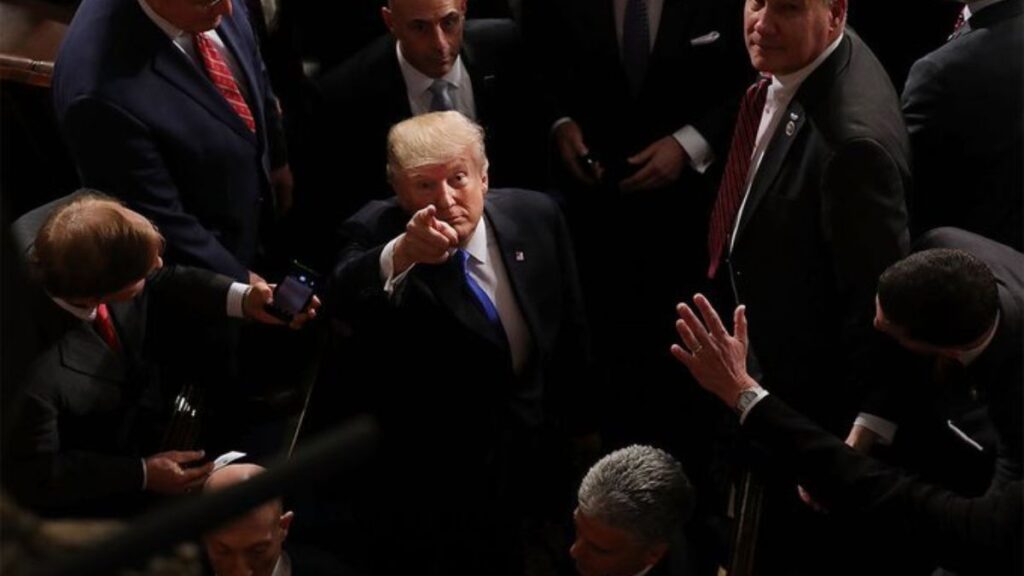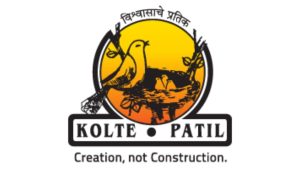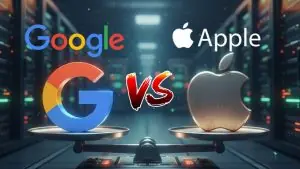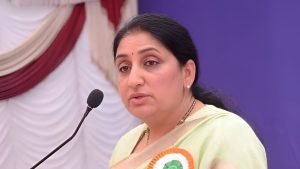India’s Booming IT Sector Next on Trump’s Radar?

US President Donald Trump is once again stirring debate over outsourcing, and this time India is right in the spotlight. Reports suggest that Trump is considering blocking American tech companies from outsourcing IT work to India. Alongside this, he is also looking at further tightening the H-1B visa program, where Indians make up more than 70% of the workforce, this move is being aggressively initiated and backed by advisor Peter Navarro.
The move seems to be part of his broader “America First” push to bring jobs back home. On Thursday night, Trump hosted a high-profile dinner at the White House with top tech CEOs. Observers believe this idea may have been floated during such closed-door conversations, signalling just how seriously the administration is weighing these changes.

Social Media Buzz in the US
The possibility of restricting Indian IT outsourcing has set off a storm on social media in America. Conservative commentator Laura Loomer, who has 1.7 million followers on X, wrote:
“JUST IN: President Trump is now considering blocking US IT companies from outsourcing their work to Indian companies. In other words, you don’t need to press 2 for English anymore. Make Call Centers American Again!”

Another user, Wall Street Mav, with 1.6 million followers, went even further, saying:
“Trump says we have lost India to China. We need to cancel the H1-B visa program for all of India. We don’t have a shortage of programmers. Start sending them home to India.”

These comments show that while many in the US see this as a win for American workers, the tone towards India’s IT sector has turned sharply critical.
Why It Matters for India
If such measures are rolled out, the impact on India’s IT industry could be massive. The US is the single biggest market for Indian IT exports. Companies like TCS, Infosys, Wipro, HCL, and Cognizant handle everything from cloud services and data management to cybersecurity and back-office operations for American corporations.
A tariff on IT services or restrictions on visas would raise costs for US firms, but it would also hit India’s $250 billion-plus IT sector hard. Millions of engineers and graduates in cities like Bengaluru, Hyderabad, and Pune depend on outsourcing and H-1B jobs as a career path. Beyond the financial hit, such policies could also strain India-US ties and force Indian IT companies to look at new markets.
How Will Trump Target Indian IT Companies
Most likely, Trump administration will impose non-tariff barriers on IT industry, making it difficult for American tech companies to import services from India. Such barriers besides restricting H-1B visas, may include imposing service taxes or levies on companies that outsource work abroad; tighten data localisation or cybersecurity regulations that penalise offshore services; scrutinise remote contracts through the lens of national security, similar to how Chinese tech firms have been treated; pressure American firms via public campaigns or executive orders to “reshore” services, using propaganda and regulatory tools.
These tools could indirectly make Indian services more expensive or less attractive, achieving the same effect as a tariff.
India’s biggest export to the US has never been just goods. It’s been its people, software engineers, data scientists, IT consultants, and students. If Trump’s proposals take shape, they threaten not just an industry, but also India’s role as the world’s IT hub.










